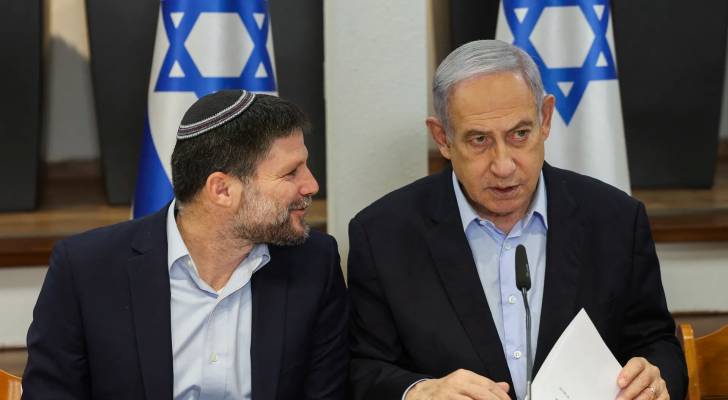'Israel' weighs annexation of West Bank land in response to Palestine recognition push
The 'Israeli' government is in the midst of a serious debate over the annexation of parts of the occupied West Bank.
The move is being considered as a direct retaliatory response to a push by several Western countries to recognize a Palestinian state. According to three 'Israeli', US, and European officials, the debate is gaining momentum ahead of the UN General Assembly session in September, where countries like France, the UK, Australia, and Canada have announced their intention to formally recognize Palestine.
Prime Minister Benjamin Netanyahu has reportedly held meetings to discuss a range of possible retaliatory steps. The issue is expected to be a central topic in the 'Israeli' security cabinet meeting on Sunday, with several of Netanyahu's ultranationalist coalition partners, as well as the settler lobby, pushing hard for annexation.
Annexation proposals, diplomatic threats
According to reports from Axios, senior 'Israeli' officials have already begun using the threat of annexation in diplomatic conversations. Strategic Affairs Minister Ron Dermer and Foreign Minister Gideon Sa'ar have reportedly told their European counterparts that 'Israel' could annex parts of the West Bank if they proceed with recognizing Palestine.
Specific proposals being considered include:
- The "Maximalist" Approach: Annexing all of "Area C," which constitutes 60 percent of the West Bank.
- Settlement Annexation: Annexing 'Israeli' settlements and the access routes to them, which make up roughly 10 percent of the West Bank.
- The "Jordan Valley" Option: Annexing the settlements, access routes, and the Jordan Valley, which would amount to roughly 30 percent of the West Bank.
The US has already taken a retaliatory measure, with the State Department announcing on Friday that it would not issue visas to senior Palestinian officials who wish to attend the UN General Assembly and would revoke visas that were previously granted. This decision would bar Palestinian President Mahmoud Abbas from visiting New York.
Legal ramifications, historical context
Legal experts have warned that declaring 'Israeli' sovereignty over parts of the West Bank would violate the UN Charter and the Geneva Convention. The International Criminal Court is currently investigating 'Israeli' settlement activity in the West Bank as a potential war crime.
The possibility of annexation also raises significant geopolitical concerns. European officials have warned that such a move would likely lead to sanctions by the EU, its member states, and other Western countries. Arab officials have said that an 'Israeli' annexation of the West Bank would likely lead Arab countries to suspend or downgrade their peace agreements with 'Israel' and would further freeze potential normalization agreements, such as with Saudi Arabia.
The current debate is also a re-run of events during Donald Trump's first term. In 2020, Netanyahu was committed to annexing parts of the West Bank, but Trump reportedly blocked him on two separate occasions, citing that it was "going too far."
Instead of annexation, Trump and Emirati leader Mohamed bin Zayed proposed a normalization agreement with the UAE, which ultimately led to the Abraham Accords. This history suggests that the Trump administration's position will again be a determining factor in whether Netanyahu moves forward with such a plan.




